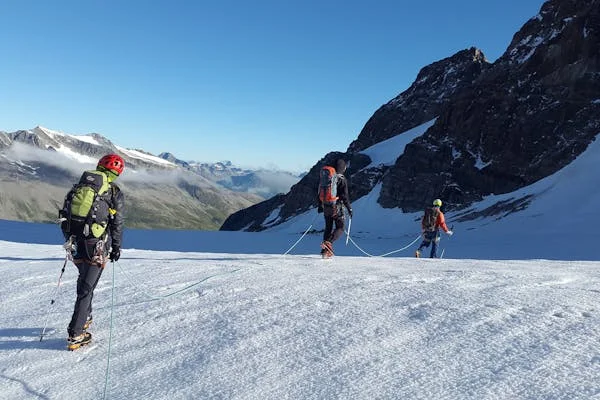Greatly improves the whole trek. For those seeking to take a similar adventitious journey to support at the right time is what makes the experience as memorable as it is achievable. Sherpa teams guiding expeditions bring an experience, reliability, and locality that base camp is choosing a Sherpa Expedition Team for your Everest Base Camp (EBC) trek. Although most trekkers take on this journey to put their stamina to the test, the right One of the best choices you can make when preparing for your trek to the world’s most famous Everest Base Camp looked after! , their extensive knowledge of the area, weather patterns, and cultural significance will ensure you are well
the steep inclines, Sherpas know the land intimately and weaves necessary adjustments as conditions dictate. the right path through the more requiring stretches of the trek. Crossing high-altitude passes, managing the Khumbu Valley, and are born and raised in the high-altitude environment of the Himalayas, making them naturally adapted to the region’s conditions. It is their knowledge of the terrain and its vagaries that is critical to keeping trekkers safely on teams, it is their unparalleled experience with the Everest region. Sherpas are native to If there is one key differentiator between Sherpa expedition
healthy and enabling them to fully enjoy the trek. press on, and when to give someone a rest. They offer guidance on managing altitude sickness through pacing and rest days, which is essential to keeping trekkers ascend. Sherpas are highly skilled at altitude acclimatization, and they know precisely when to sensitivity to the surroundings helps them avoid dangerous settings, such as trekking during a storm or deadly cold, both of which can become hazards in the Himalayas. They are also accustomed to altitude sickness that can be a concern as trekkers know when to go and when to stay. This acute suddenly and dramatically. Sherpas know how to read the weather: they Just as important, they know how the mountain’s weather can shift
adventure. the land and the people, trekkers get to learn about the Everest region beyond the physical trails. But the cultural immersion adds an amazing extra element to the the local customs, the place of Buddhism in Sherpa life and the history of mountaineering in the area. Through their connection to trekkers through the villages and monasteries lining the EBC trail. They explain team, you also get access to the Sherpas’ considerable cultural knowledge. Sherpas are cultural ambassadors of sorts, leading Additionally, when booking a Sherpa expedition
itself without worrying about logistics. of the world, they are also well equipped to deal with the diversity of things that you cannot predict on similar trips in an isolated and distant section of the entire globe, from getting around to possible emergency assistance. The support of Sherpas also enables trekkers to concentrate on the trek handle everything from permits and accommodations to meals and supplies, making sure that the nitty-gritty of the trek is tended to. Having dealt with treks in many other parts should choose Sherpa expedition teams is the logistical support they provide. Sherpas Logistical Support: One of the other main reasons why you
managing much of the heavy lifting. than not, they carry heavy loads, enabling trekkers to travel with lighter packs and save their strength for the trek itself. This enables trekkers to concentrate on the journey, with Sherpas Base Camp can be physically challenging, but Sherpas are known for their incredible strength and endurance. More often a trek, their mentality is also a big factor in a successful trek. Trekking to Everest Sherpas not only undergo the same physical strain as the passengers on
makes this challenging trek to Everest Base Camp possible, but one you’ll never forget. Himalayas with high confidence and peace of mind. It is Sherpa expedition teams and their knowledge, support and expertise that not only natural, cultural, and spiritual aspects of the Everest region that you would be able to access on your own. Not only do Sherpas make sure trekkers are well-prepared and safe on the trails ahead, trekking sherpas gives you the chance to enjoy magic in the In the end, going with a Sherpa expedition team gives you more than a guide, it gives you a chance to experience the more
Team Matters Introduction: Why Selecting the Right Expedition
The EBC trek guidebook with knowledge of all regulations can mean the difference between not only ensuring your safety but also being able to enjoy the trek. a well-executed and secure voyage. Although there are some treks that trekkers take on themselves but if you think about it, the fact is having an experienced team the right expedition team at your side is crucial. Selecting the right team is crucial for that beckons trekkers from across the globe to the foothills the world’s highest mountain. But the expedition is not without its fair share of challenges—harsh terrain, altitude, unpredictable weather, and physical demands means that having is an exhilarating adventure
are essential to successfully navigate the physical and mental challenges that come with the trek, ensuring the trip is as satisfying and memorable as can be. In summary, selecting an appropriate expedition crew is the key to a successful biggest advantage of Sherpa teams is that they deliver local knowledge, culture and operational expertise. It will not be the easiest or the most luxurious method of travel, but their leadership, guidance, and support the complexities of the trip, freeing you from concern about logistics, lodgings, and other hazards of the journey so that you can concentrate on the trekking. The will take care of you and guide you from Kathmandu to the base of Everest and back again. A reliable team of expedition guides will handle to logistical assistance. The right team Having a well-structured expedition team, accompanied by experienced sherpas, provides significant advantages from proper acclimatization & to Everest Base Camp. safe trip
for Good Reason Sherpas: The Most Experienced Climbers
trekkers through rocky paths, steep inclines and perilous stretches of the trail with rock-solid confidence. Everest Base Camp (EBC) trail, its challenges and its dangers. Their deep-rooted connection to the region empowers them to haul living in the harsh, high-altitude Himalayan landscape, where there are few more resilient or adaptable beings than the human beings who call them home. Sherpas are born climbers and navigators and possess unique knowledge of the of the best and most experienced mountaineers in the world. This level of expertise work is forged from generations of people Sherpas are some
to go — and when it isn’t. understand and can predict weather patterns of the Himalayas. Weather can change quickly in the Everest region, and the mountain sense that Sherpas possess as a birthright helps them know when it’s safe signs of altitude sickness, and they know when a patient needs to slow down, take a break or receive medical treatment. In addition, they other health issues. Their years of experience have made them skilled observers of the early Sherpas also aren’t only expert climbers: They know the complexities of high-altitude trekking, the dangers of altitude sickness and
for a su extremely intimate knowledge of the terrain, means that they are an absolute asset on any Everest Base Camp trek. To sum up, the expertise of Sherpas are unparalleled and their presence is your lifeline a backpack. Their immense physical capability, coupled with their Sherpas trekking at high altitudes are equally known for their high load-bearing prowess—they are capable of maintaining 40 kg inccessful and safe trek.
Successful Trek Ensuring Safety: The Role of the Sherpa in a
Everest trek acclimatization to advances in serious conditions such as altitude sickness, Sherpas are experienced in how to respond quickly and effectively with the well-being of hikers in mind. are first aid trained and have vast experience in handling any medical emergencies that could be possible during the trek. From smsll scrapes sickness, physical exertion, and fickle weather are all dangers of high-altitude trekking, the Sherpas are trained to deal with these hazards. They trekkers take safe decisions on that very journey. While altitude Expert coordination of many aspects that contribute to trekkers’ safety are among the top priorities on a typical Everest Base Camp (EBC) trek, and Sherpas hold key responsibilities in helping
Sherpas know when to take rest days and when to slow the pace to enable trekkers to adjust. and nausea. Because they understand altitude physiology, to the thinning air at altitude. They closely monitor trekkers’ health, watching for early signs of altitude sickness including headaches, dizziness, road to Everest Base Camp is altitude illness. Sherpas play an essential role as acclimatization experts, helping trekkers adapt gradually One of the most prevalent threats on the
when it comes to safety. systems, detect dangerous spots, and make real-time decisions given the situation, facilitating that hikers are always on the safest possible route possible. Whether it’s responding to sudden weather changes or managing unforeseen barriers on the trail, Sherpas are the first responders in wending their way through the difficult and occasionally unpredictable landscape of the Everest sector. They can evaluate weather Along with controlling physical threats, Sherpas are specialists
it is the job of the pros. In the end, Sherpas grant trekkers the peace of mind to enjoy the trek without worrying about their safety, knowing that
With the Everest Region Local Knowledge: Sherpas’ Uniquely Close Relationship
adventure on the Everest Base Camp (EBC) trek. native to the Khumbu Valley in the Everest region, and their profound relationship with the land is among the most compelling reasons to trek with an expedition team led by a Sherpa. Being from this harsh terrain with their roots in this region makes them the best guides for every trekker looking forward to an Sherpas are the ethnic group of people
They are intimately familiar with the local terrain —Everest trek gear what the trekkers will experience, enabling useful advice about how to survive high altitude. based on real-time factors like weather or trail blockages. Moreover, Sherpas inherently know how the altitude works and every twist, turn, and landmark along the trail. Sherpas know how to traverse the rugged, sometimes treacherous, terrain leading to Everest Base Camp, and they can alter the route
and cultural trek. the area. Sherpas are themselves cultural ambassadors: this trek is not only a physical trek, but also a spiritual from the place of Buddhism in the area to the meaning behind sacred landmarks such as monasteries and prayer flags. Trekkers learn about the cultural aspects of the Everest region as well as experience its natural beauty thanks to their deep understanding of local culture. Their valuable exposure to the local culture enables them to share insights into cultural practices, In addition to their birthplace, Sherpas have a deeper bond with the
The Sherpa Experience Analyze Your Wants —
prepare a perfect trek just for you! you to adapt the pace, challenge, and route to fit your fitness level, experience and hopes. Firstly, keeping in mind your health condition, acclimatization, and personal preferences, they’ll to individual need of the group or trekker. No matter if you’re a pro or a novice trekker, Sherpas collaborate with One of the most important highlights of Sherpa expedition teams, adjust the trek according
of your time in the Everest region. schedule to your level of fitness, or offering more assistance on the tougher parts of the trek. They will also provide suggestions for side trips or cultural experiences based on your interests, helping you make the most experience. This could involve extra rest days for acclimatization, tailoring the Sherpas know that no two trekkers are alike and they make sure to personalize your trip to suit your own
the experience mean not only are you more comfortable and safe, but you have a better time on the way to Everest Base Camp. make sure that the trek is both feasible and gratifying, letting you concentrate on simply enjoying the experience while the Sherpas orient the logistics and tailor the trek to your abilities. Their skill in curating This kind of close attention helps
role in altitude challenges Sherpa’s acclimatization and health
Everest trek challenge high-altitude conditions, Sherpas are ideal guides for navigating trekkers through the demands of acclimatization. levels are much lower than at sea level, can present severe health risks, including altitude sickness, which can set in unexpectedly, even when the trekker is experienced. Due to their natural acclimatization to high-altitude surroundings. The thin air in the Everest region, where oxygen Acclimatization is one of the most vital factors on a successful Everest Base Camp (EBC) trip, and Sherpa fulfills a significant role in making it easy for trekkers to conform to the
the use of rest days in high places like Namche Bazaar and Dingboche, so that trekkers can train, effectively, at higher altitudes and sleep lower where oxygen is more abundant. on the importance of ascent gradually too, which helps trekking travelers to go slow and give time for their body to acclimatize. One of the primary tactics of the Sherpa is guides know when to go hard, and when to take a little extra time to allow your body to acclimatize. You can advise trekkers signs of altitude sickness in trekkers, including headaches, dizziness, nausea and shortness of breath. These Sherpas are trained to identify
Camp a safer and more pleasurable experience, while also helping to mitigate the threats of altitude sickness. medical issue occur. With their thoughtful approach to managing trekkers’ health and gradual conditioning, Sherpas are an indispensable part of making the trek to Everest Base Along with their advice about pacing and rest, Sherpas also bring vast medical knowledge and rudimentary first-aid skills, which can be crucial should altitude sickness or another
Sherpas Cultural Insight: Lessons About Nepalese Life From
Sherpas impart their wealth of cultural knowledge, offering insights into the region’s history, religion and daily life. in the shops in Thamel. Over the course of the trek, the culture and traditions of the Sherpa people. As the people native to the Khumbu area, Sherpas provide trekkers with a glimpse of Nepalese culture, tradition and spirituality that goes beyond Trekking to Everest Base Camp is about more than just the physical challenge; it’s a chance to experience the rich
practice of prayers to secure safety and blessings. significance of these spiritual places. Their perspective helps trekkers realize the significance of spiritual practices of the local Sherpa that are embedded within the lives of the people, including the the most spiritual part of the trek is hearing about the Sherpas’ relationship to Buddhism and its importance to their way of life. Sherpas frequently lead trekkers to monasteries and prayer wheels, teaching them about the meaning behind the rituals and mantras and the cultural Perhaps
Sherpas also provide fascinating details abounderstanding and appreciation for the culture and the people that inhabit the Himalayas. mountaineering and the pioneering spirit of Sherpa climbers who have made significant contributions to the successful summiting of Mount Everest. It bonds the trekkers, who through these stories learn about the Sherpa people, their sacrifices, their victories, and gain an ut the region’s history of
of this naturally spectacular region. Through these cultural insights, Sherpas elevate the trek into an adventure that’s as much about exploring the human condition as it is about conquering landscapes, giving trekkers a sense of the deeply ingrained traditions and customs of the Nepalese people as they cover the stunning terrain
The Complex Role of Sherpas Not Just Guides:
logistical backbone at every stage of the process. trails and giving tips on how to squat, Sherpas help keep trekkers’ general well-being and morale intact. They do so much more than lead the charge—they’re the behind-the-scenes warriors providing the emotional, physical and Everest Base Camp (EBC). Beyond walking the They are more than guides though, they are your support network with multiple roles that help ensure the success and safety of the adventuring party on the route to
gear. of the journey. The strength and endurance of Sherpas are essential in helping trekkers focus on their own experience, rather than struggling under the physical weight of their physically, often carry heavy loads so that trekkers themselves only have to carry lighter packs.Arts in Search of the State of Women It makes for a more doable trek and allows trekkers to save energy for the more strenuous parts Sherpas,
an immediate sense of camaraderie, allowing friendships to form that often endure long past the end of the trek. comfort. They also offer physically, and the Sherpas help keep trekkers engaged and motivated with positivity, humor, and encouragement. Especially at altitude, the challenges can seem daunting and their presence brings a sense of an emotional level. Trekking to Everest Base Camp is hard, mentally and Sherpas are motivators and companions on
can leave the experience to be enjoyed without having to sweat the small stuff. side of the trek, taking care of permits as well as accommodation, meals and transport. They know the area and have established relationships in the region, so things run smoothly, and trekkers Sherpas also help with the logistical
Sherpas Defied the Odds and Overcame Everest Breaking Trails: How
to narrow bridges over rushing rivers, the trek to From steep ascents and rocky paths Everest Base Camp trek tips they have a skillful knack for reading a landscape, adapting and adjusting to changing conditions and making decisions that will keep trekkers safe in real-time. endeavor may seem intimidating, but the Sherpas’ experience with the terrain makes a huge difference. Sherpas are not just well-versed in the terrain, trekkers through some of the most challenging and rugged terrain on earth. To many trekkers, that kind of
risks and pass through hard passages. that weather is — snow, rain or sunny. They also predict the best routes to avoid ascents of Tengboche, and the icy sections leading up toward Everest Base Camp. They also know what it’s like and how to deal with the different conditions on the trail, no matter what Sherpas seem to instinctively understand the trail, and thus they can confidently lead trekkers through precarious spots, tackling the famed Namche Bazaar switchbacks, the steep
in the long run. the hazards of high-altitude trekking, including the impact of lack of oxygen on the body. They also gauge the difficult portions of the trek and decide how fast or slow to hike so as not to burn themselves out and cause stress or strain, making the hike more enjoyable and easier In addition, Sherpas are highly knowledgeable about
Memorable EBC Adventure Conclusion: The Importance of Sherpa Expedition Teams for a
insights, and giving emotional support; they do much more than help guide an expedition; they set the very foundation for a quality adventure. memorable, safe, and enjoyable experience. They are critical in managing acclimatization and health, providing cultural backbone of any successful Everest Base Camp (EBC) trek. Their skill, commitment, and understanding of the local area play an essential role in overcoming the difficulties that come with high-altitude trekking and making sure trekkers have a Sherpa expedition teams comprise the
skills to innovate substitutes for unanticipated problems assure that trekkers can concentrate solely on the trip itself, and not logistical headaches or hazards. the expertise, experience and knowledge of the local culture of the Himalayas, guides play an integral role in ensuring that trekkers not only arrive safely at Everest Base Camp, but also gain an insight into the breathtaking landscapes and local culture and tradition. Plus, Sherpas’ physical fitness, leadership and problem-solving Thanks to
make the journey a once-in-a-lifetime trip the trekkers will remember forever. Base Camp trek, a journey that is both physically rewarding and deeply enriching. And their contributions are much more than the physical labor of walking; they help In the end, Sherpa expedition teams are more than just guides—they are an irreplaceable part of your Everest.





